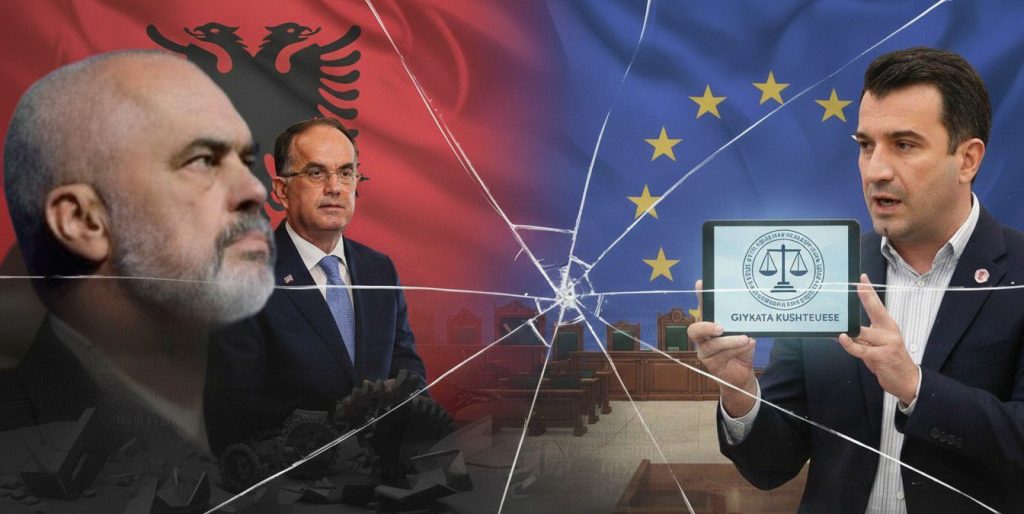
By any democratic standard, the dismissal of Tirana’s mayor, Erion Veliaj, should have been a matter of procedure. A mayor fails to appear in office for months; the municipal council triggers the law; the government declares the seat vacant. On paper, that is what happened in Albania. In reality, the decision has exposed the country’s fragile political system, one that operates in the gray zone between democracy and autocracy.
The Council of Ministers insists it simply applied Article 62 of the local self-government law, which requires removing a mayor absent for more than three months. Yet the timing and the political context make the dismissal look less like a technical matter and more like a calculated strike by Prime Minister Edi Rama. Veliaj, once a loyal ally, is suddenly seen as a rival. Neutralizing him by invoking a technical clause is the kind of maneuver more familiar in systems where executive power bends the law to its will.
Veliaj has appealed to the Constitutional Court, framing his case not as a personal battle for office but as a fight against political interference in the popular mandate. He has a point: if a prime minister can orchestrate the removal of a directly elected mayor, what is the value of the ballot? The essence of democratic legitimacy—the right of citizens to choose their leaders—is hollowed out when their votes can be nullified by a cabinet decree.
Here lies the real test for Albania’s institutions. The Constitutional Court must decide whether this dismissal was lawful, or whether the government crossed a line into autocratic behavior. If the court upholds the government’s decision, the message will be chilling: in Albania, constitutions and statutes bend to political convenience. If it reverses the dismissal, it will offer a rare sign that checks and balances still exist in a system dominated by one man.
The stakes are higher than Veliaj’s career. Albania is formally a candidate for European Union membership, yet it increasingly looks like what analysts call a “hybrid democracy”—a state where elections happen but power is monopolized. The United States has already expressed doubts about the reliability of Albania’s judiciary: the State Department advises American investors to include mandatory clauses for international arbitration, warning them not to rely on Albanian courts to settle disputes. That is an extraordinary indictment of a country that aspires to join Europe’s liberal democracies.
Veliaj’s dismissal is thus more than a local political drama. It is a window into the condition of Albania’s democracy: fragile, compromised, and too easily bent to the will of a single leader. Whether the Constitutional Court acts as an independent arbiter or as a rubber stamp will tell us whether Albania is still capable of moving toward a European model—or whether it has already resigned itself to being an autocracy in all but name.
